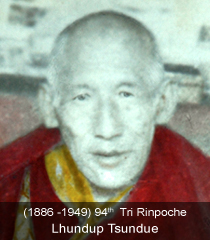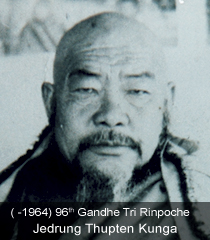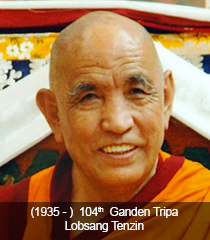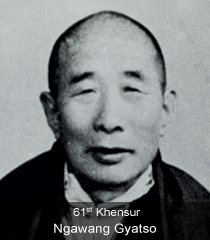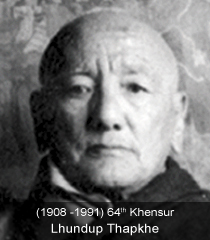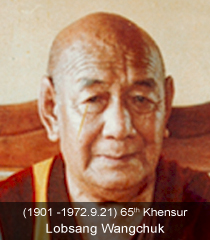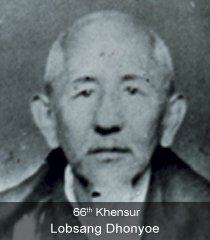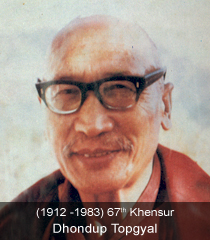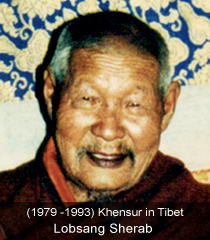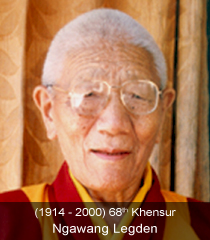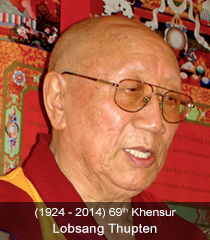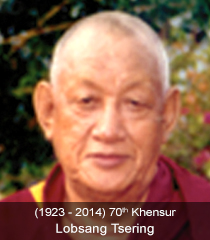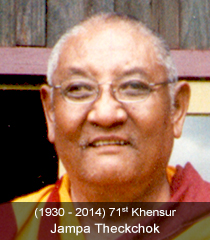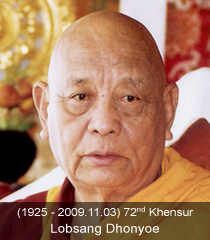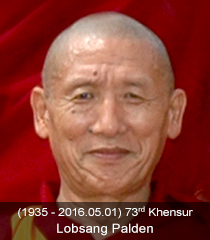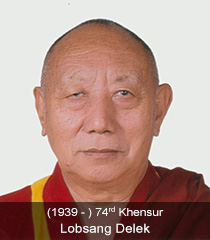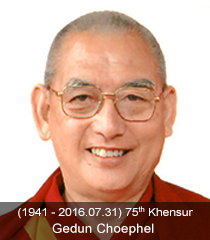The history of Sera Jey Monastery dates back to early 15th Century AD. Founded by Venerable Jetsun Kunkhen Lodroe Rinchen Senge, during the early History of Buddhism in Tibet and at the time of the great Lama Tsong Khapa (1357 - 1419) the founder of the Gelug Order, a highly learned & noble saint and master of the Scriptures on Buddhism with a gift of supreme power of visualization and knowledge.
Following in the footsteps of this Divine Master Lama Tsong Khapa, a devoted and noble disciple, Kunkhyen Lodroe Rinchen Senge, possessing profound knowledge, a master at the Drepung Monastery, who fatedly left to join Sera Monastery where Sera Jey Monastery was formed. History and legend has borne the records of the magnificent accounts that led to the birth of Sera Monastery and the subsequent establishment of Sera Jey Monastery. It was when Lama Tsong Khapa, the master and founder of Gelug Order, during one of his deep prayer and meditation on Manjushri (Jampel Yang) behold the vision in which he clearly saw the entire text of Prajnyapara-mitta's 20 slokas on Shunyata spread over the sky. The unique moment spelled upon him total insight in the complete knowledge of Tsawasehrab (Fundamentals of Madhyamikka or Shunyata) Text. Simultaneously, he beheld the vision of a rain like "AA" characters descending from the sky. This was an auspicious symbol to his prophesies on the birth of a great source of learning on Buddh-ism. Which after twelve years, Jamchen Choje Shakya Yeshe acting upon the supreme wishes of his Master, began establishing the proper Seat of learning where knowledge of complete teachings and practices of Mahayana Tradition are imparted and pursued.
Nedong King Dagpa Gyaltsen gave financial support for the construction of a Monastery and laid down the foundation in the year1419. All the subsequent development including installing sacred Images and other objects of worships were completed according to the supreme wishes of great Lama Tsongkhapa. It was soon known as ' the Seat of Theckchen ling (Mahayana Tradition)'. It is said that name 'SERA' came to be attached with this great Monastery from its location being surrounded by raspberry shrubs called 'Sewa' in Tibetan, that formed like a ' Rawa' in Tibetan meaning 'Fence'. In the following years very soon the fame of this great Monastery as a great seat of learning Gelug tradition spread all across Tibet and elsewhere in Buddhist influenced neighbouring countries.



